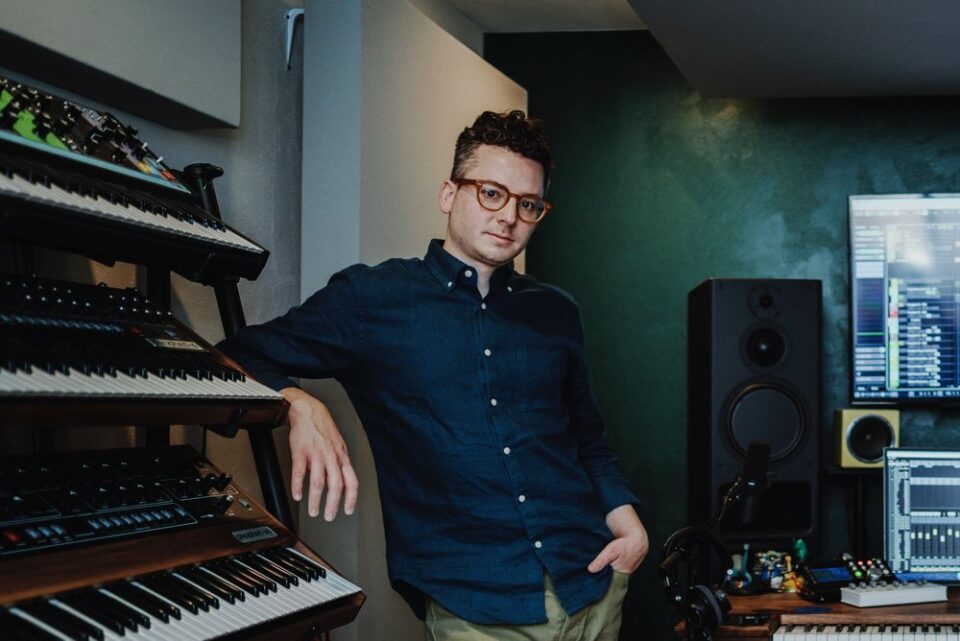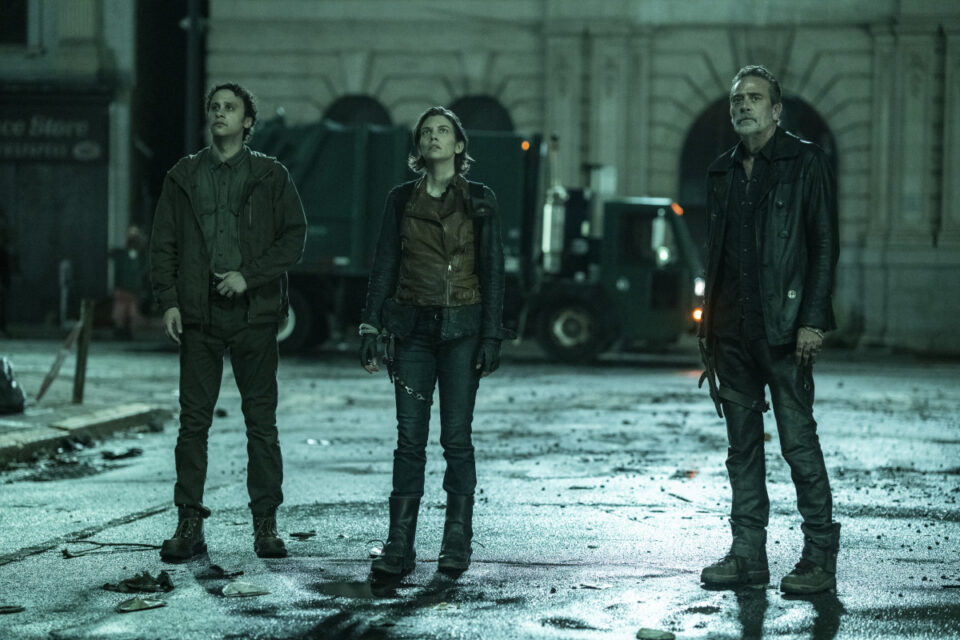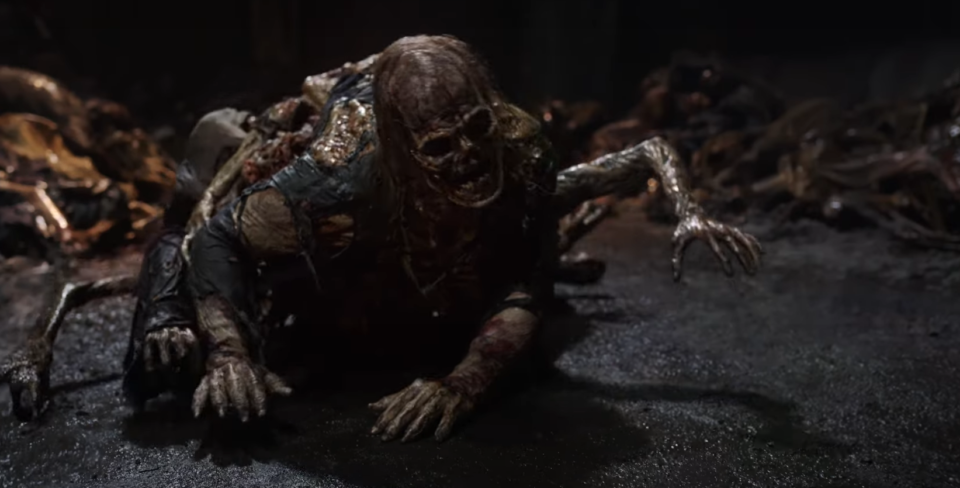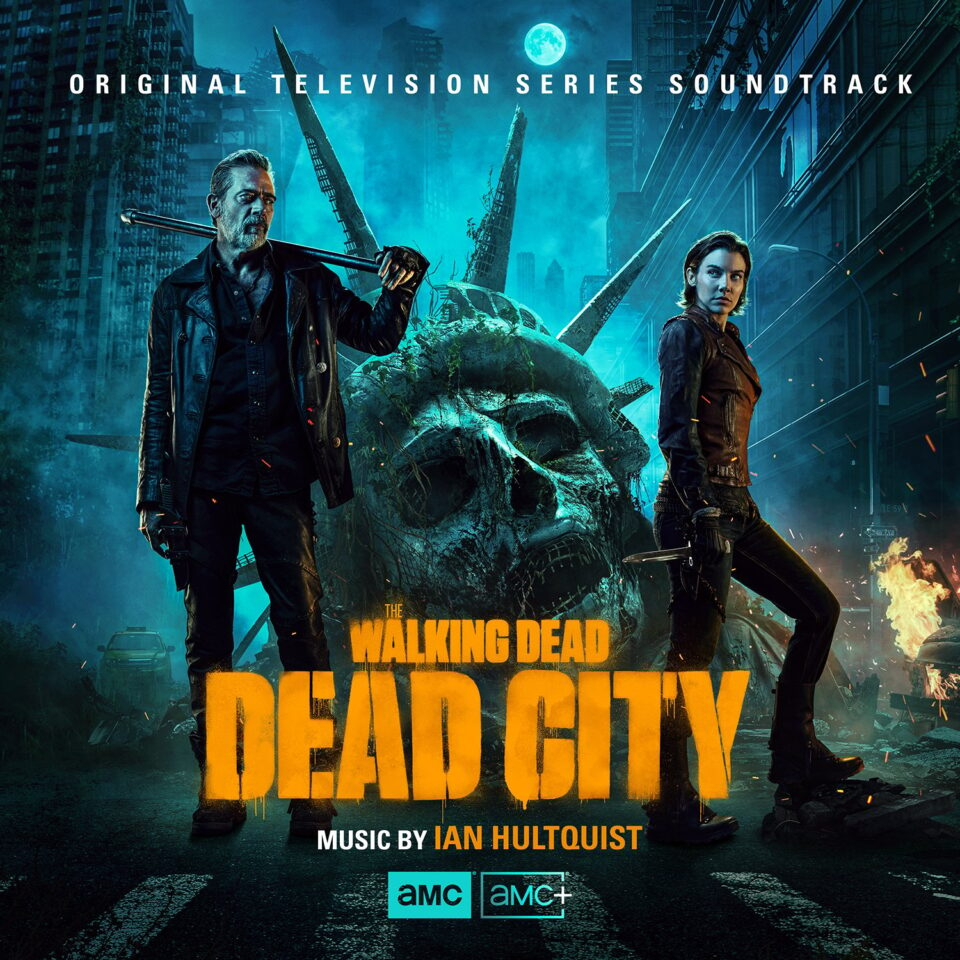‘The Walking Dead: Dead City’ Composer Ian Hultquist on New Adventures in New York

Throughout its 11-season run, AMC’s The Walking Dead took viewers down many emotional and literal roads. Whether those roads led to rural farms, Oceanside, Hilltop Colony, Alexandria, or some remote Southern forested locale, stomach-churning walkers and hardship were guaranteed to follow. While it may seem like few paths were left untraveled, the new spin-off The Walking Dead: Dead City begs to differ. In the show, series regulars Maggie (Lauren Cohan) and Negan (Jeffrey Dean Morgan) take audiences where they’ve never really ventured before—New York City.
With this drastic change of scenery, showrunner Eli Jorné knew a fresh approach and sound were paramount. To aid in this endeavor, the production team brought composer Ian Hultquist into the fold. No stranger himself to taking roads less traveled, Hultquist began his music career as a founding member of the band Passion Pit before transitioning into scoring for film and TV full-time. Since then, Hultquist has racked up a diverse and fascinating body of work that includes projects like Assassination Nation, Night Teeth, Dickinson, Good Girls, I Know What You Did Last Summer (2021), and One Of Us Is Lying.
Though fully aware of the incredible score work composer Bear McCreary delivered with the original series, Hultquist and the rest of the creative team deliberately set out to expand and explore the new environment Maggie and Negan find themselves in. Embracing the stark realities that The Walking Dead: Dead City reveals, Hultquist employs a more industrial, atmospheric, and gritty electronic approach, highlighting an iconic city fallen. Moody and dark, the score floats around each scene like haunting mist, breaking and intensifying where needed.
Dread Central recently spoke with Hultquist, where we discussed all things Walking Dead, John Carpenter’s influence, the importance of ambiguity and cross-over concerns shared between composers and writers during the ongoing WGA strike.

Dread Central: As a spin-off from the original The Walking Dead series, this new adventure takes place in the same world despite having its own identity. Did having that tether influence the early conversations around the show’s musical direction?
Ian Hultquist: Yeah, it’s funny. I think one of the very first ground rules we laid out was that we didn’t want it to sound anything like the original show. Even though I had actually seen most of it and I was familiar with it, I went back and listened to a very little bit to kinda be like, “Ok. That’s what [Bear McCreary] did. That’s what I won’t do.”
We wanted it to feel fresh and new because, even though Maggie and Negan are characters coming over from that show, we’re in a brand new world. We’re in an environment we’ve never seen before—an environment they’ve never seen before. The characters talk about how they’ve actually never really been to New York.
So one of the first initial pitches was pulling inspiration from John Carpenter’s Escape From New York, having a 70s gritty-synth vibe. I feel like the core inspiration of that carried through, but we still went through a lot of experimentation and evolution. The sound became its own thing after a while.
DC: The poster teases some Escape From New York nods and vibes. But it’s wonderful to hear that it wasn’t just some marketing idea but an intentional influence and homage.
IH: It was a pretty strong point of reference at first—everything from production design to cinematography to the music. I originally went very hard with the 70s synth sound, but we definitely pulled back on that and went in a bit of a new direction. We went for more ambient, industrial synths and a lot of distorted tones. But there are still moments where it full-on has some 70s analog synths happening.

DC: New York plays such a huge role in this series and is a character all its own. How did the physicality and spirit of New York (as we see it in the show, anyways) make its way into the score?
IH: Yeah, that’s a good question. There’s a couple of different things. I think one is just the atmosphere of it having these giant, cold structures that almost feel like they’re closing in on you. Even though it is such a big city, it feels claustrophobic, sweaty and hard to breathe. There’s actually moments when they really go down into the sewers, and it is sweaty and hard to breathe. [Laughs] I think that brought out the industrial side in the music.
Then, to take things further, a friend of mine did a lot of field recording in Maine in this abandoned warehouse banging on silos, banging on metal and just really finding things that were old, broken, and haunted sounding. He sent a lot of samples over to me, and I used those in the score to really just add this creepy atmosphere into the sound. We really wanted New York to feel scary and unfamiliar. That was, that was a word we used a lot. It shouldn’t feel familiar and comfortable at any moment.
DC: We get some fan faves back in this show with Maggie and Negan. However, both have clearly been through some shit. Everyone in this world is traumatized, and everyone has done bad things. How did you navigate that character ambiguity and support the idea that nobody is a hero and nobody is a full-on villain?
IH: You know, it’s interesting. When I first got hired on the show, I wrote an almost 10-minute-long suite of musical ideas to be like, “This could be a Maggie theme. This could be a Burazi theme.” Just throwing things out there, getting a palette together and seeing what made sense. Eli Jorné, the showrunner, loved it at first. He got really excited about it. But then when we got to actually writing cues for the show, we realized we had to rethink how we approach a lot of things.
It’s not a very melodic score, which I know some people probably won’t like, but it was by design. There’s a few moments where music kind of pops out, but we didn’t want music to take over. We never wanted it to feel too saccharine.
This suite actually opened with this big, heroic theme that I wrote for Maggie and it never makes it into the show because she never has a heroic moment. She isn’t necessarily the hero. She might be the hero to me, but she’s not actually the hero of the story. Negan very clearly states that in the first episode when he says, “How many husbands and fathers have you killed?” So it was interesting. Anytime I did write a cue for Maggie, it’s kind of her in conflict with other characters or in conflict with herself and dealing with her own trauma.
I think Negan might have, its not a hero theme, but he does have a pretty strong theme that transforms throughout the season. In his darkest moments, it really plays into that. Then, in the last episode, it comes back, but in a completely new way that’s actually very sweet and sad. I think it’s something that a lot of people watching this show have been having a bit of conflict with because Negan has done horrific things. And he continues to do horrific things in this show, too. But he really stands by the fact that he only does it when it’s necessary to protect those he cares about. Everyone in this show is so messed up. [Laughs]

DC: The Walking Dead has always pushed boundaries when it comes to zombies and gore, and this new series certainly continues that tradition. What was it like scoring some of those super vivid scenes, and how did you support them musically?
IH: Yeah, there’s some really nasty stuff. [Laughs] It’s funny, Episode Two just aired this past weekend and everyone loves the “knock-knock” scene with Negan. Even though I worked on that and had to watch it over and over and over, it still absolutely makes me turn green.
Some of the bigger zombie scenes, though, it was a matter of holding back as much as I could until those hit. Then, really pushing the music out to make it as effective as possible. I think Episode Five is a really big showpiece for zombies and terrible, scary things that happen. I think that whole episode is just this freight train going up and up and up with tension. Musically, it was just slowing pushing and finding ways to keep going, going, going, and going.
During the biggest action piece in Episode Five, the tempo is literally ramping up and just going nuts. I did a lot of this very low sub-y bass that would be thumping along. Then, as the tempo gets faster, your heart starts catching up with it. It tricks you into freaking out a little bit. At least, that was the intention. Hopefully, it works. It was just like, “How do I scare myself with the music?”
DC: It totally worked on me! While it is dark, there are also really lovely glimmers of hope here and there. How intentionally placed and deliberate were those musical moments?
IH: There are a lot of moments where characters are talking, and it’s not all doom and gloom. At least, we’re trying not to make it all doom and gloom. [Laughs] I think it was really trying to find the emotion that’s happening between however many people are talking on screen. It was a lot of back and forth with Eli, the showrunner, and not going overboard.
I think those are good examples where, if we had done things differently, those probably would’ve been very melodic moments. It maybe wouldn’t have felt as genuine if we had gone over the top with that. I think being more subdued and really just trying to support the dialogue that’s happening without overstepping seemed like the most organic, natural way for those moments to come through.
I feel like I see a lot of other shows or films where the music is beautiful, but there’s just so much of it. It becomes wallpaper after a while, and you can’t really notice it. You almost zone out a bit. Whereas, I think staying subtle helps us actually focus on what’s being said and what the meaning is there, which I think is really important on a show like this.

DC: You’ve worked a lot in the streaming sphere on films and TV shows. Because of that, I’d like to ask you a broader industry question. As a composer, how has the WGA strike impacted you? Are there any cross-over concerns you share with the WGA and the issues they’ve brought to the forefront?
IH: It’s very, very real and very present in our daily lives right now. There’s not any work really. Almost everything is on hold. I think any productions that are still shooting are out of the country or on closed sets. And I’m hearing things like, there can be no improvisation of lines or anything, so I’m curious to see any films that are shooting right now. They might feel weird, and they might be very stiff unless you have the most amazing script ever and it’s just rock solid. It’s shooting in a not totally organic way. But yeah, work has totally dried up. I’ve just been playing drums all day because I don’t have a ton of music to write, really. [Laughs]
As far as what they’re on strike for, that’s also very real. I’ve honestly done more streaming shows than not. Most things I do are streaming projects, and I do see residuals from it, but from what I understand, it’s nothing compared to what it would’ve been had it been a broadcast cable show or something like that in the early 2000s or late 90s.
It’s been a little scary, too, with the advancements in AI. A lot of composers are like, “Well, we’re done,” but I don’t think we are there yet. I think we still have a ways to go. Yes, there are really impressive things that AI can do, but there’s also plenty that it cannot do and plenty that it will overlook and not think about. An AI might have scored those emotional scenes with crazy sweeping melodies, and people would have been like, “I don’t like this. It’s too much and not connecting with the words the right way.”
So yeah, it’s a weird time in the score world and in Hollywood in general. I think we’re all just waiting to see what happens. I’m staying positive that the strike will end eventually with a deal in place that everyone can feel good about, and we can all get back to work, hopefully.
DC: Do film and TV composers have any sort of organized group or union?
IH: No, we don’t have a union. There is a musicians union, but there isn’t a composers union. It’s something that has been talked about a lot, but it’s never been put in place. Everyone would have to stop and be like, “We are now starting over with these new rules in place,” and I just don’t know if it would be possible to get everyone on board.
I think the way that composer deals are made and how we’re treated, it just wouldn’t work. Because, we are overworked. We work all the time. If a project goes on longer, we don’t get paid more. We just keep going until it’s done. So if you’re on a film that’s being pushed four months, you’re on it for four more months. You’re not going to get more money, though. So there’s a lot of things like that where the entire industry would have to change overnight, and I don’t know how realistic that is.
DC: Dead City leaves off on a bit of a cliffhanger. Following what we just discussed, I realize many things are uncertain, but would you like to come back to New York if we do wind up with a Season Two?
IH: I know there had been talk before the strike happened. I don’t know anything official, but I would love to come back if they’ll have me. I think, storywise, there’s so much more to explore. Musically, too, there’s so much more fun to be had. There are so many terrible sounds we can make. Season Two, let’s go.
The Walking Dead: Dead City is currently available on AMC and streaming on AMC+. Additionally, Hultquist’s score for the series is now available on all major streaming platforms via Milan Records.
Categorized: Interviews News
